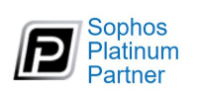Content filtering is the practice of blocking access to web content that may be deemed inappropriate, unsafe, or even dangerous. Our guess is that, in some shape or form, you have come across content filtering in the past. Whilst travelling on the train, you might have noticed that video platforms such as YouTube or Netflix were blocked in order to limit bandwidth usage. On computers in schools and colleges, admin often block access to social media platforms or gaming sites for obvious reasons. Families might child-lock their web browser to protect their children from harmful websites or otherwise keep them away from objectionable content.
In a working environment, content filtering takes on new importance. Content filtering is vital in a work setting as it can otherwise be difficult to control worker’s web browsing habits. It enables organisations to track and regulate access to websites based on their content categories. Many of these websites, while not malicious, might be problematic because of compliance regulations, bandwidth usage, or other concerns.

How does content filtering work?
Content filtering can be implemented as either hardware or software and is often part of a firewall. Organisations using content filtering can configure policies across device groups to block certain categories. Blocking a category prevents users from accessing URLs associated with the category.
According to research from Symantec, 1 in 13 web requests lead to malware. Cybercrime is obviously an important concern for business. Web content filtering allows companies to block access to potentially harmful or malicious content and protect against cyberattacks. However, the importance of content filtering is not limited to security concerns alone.
Below are some other important benefits of content filtering:
- Increase productivity: Social networking sites can be some of the biggest timewasters for staff and can distract your team from providing routine tasks. We all know how working online can be a double-edged sword. You have access to all the information you need to do your job but there is also a never-ending stream of distractions. Online shopping, gaming and other personal browsing sites can often win the work or play battle. Content filtering can limit distractions in the workplace, thereby increasing focus and productivity.
- Reduce inappropriate content: Unfiltered internet access can lead to staff opening and sharing offensive content. This can put a company in a precarious position from a legal standpoint. For example, allowing access to pornographic or hateful content can put a company at risk of sexual harassment claims.
- Reduce company liability: The world is becoming such a radicalised space. Online activity that could be viewed as inappropriate could put your company’s reputation or brand image at risk. The best way to prevent potentially harmful incidents is to carefully monitor the information that workers let in or send out. There are also regulatory considerations.
- Improve bandwidth management: Recreational internet usage can sap network bandwidth. By limiting access to non-work-related websites, companies can increase network bandwidth efficiency. Monitoring browsing activity can also provide a better picture of data usage so companies can make suggestions where necessary and stop employees from wasting data on certain sites.

How do you enable effective content filtering?
ActionPoint has always recommended that organisations take a multi-pronged approach to security that incorporates people, processes and technology. In terms of technology, a comprehensive line of defence could include an antivirus, firewall and encryption technology. But right there in the mix is an effective content filtering system. To be effective, content filtering has to be deployed across all content channels. This includes web filtering, email filtering and executable files. These are the access points whereby malicious content can come in.
At ActionPoint, we utilise the content filtering capabilities as part of Microsoft Defender for Endpoint, through Mimecast and a host of other tools and applications. Our team of experts can guide you through the steps you need to take to enable effective content filtering. We can also help you to get the most out of the tools that you already have at your disposal.











